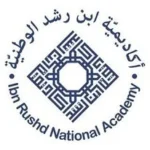
a unique learning community,
where every day provides an opportunity to discover, create, reflect, and grow.


In 2012, Ibn Rushd National Academy made history as the first school globally authorised to offer the International Baccalaureate Primary Years Programme (IB PYP) in kindergarten and primary school, grades K – 5, using Arabic as the main language of instruction alongside English as a first language.

In Middle School, grades 6 – 10, Ibn Rushd scholars pursue the International Baccalaureate Middle Years Programme (IB MYP) using English as the main language of instruction alongside an in-depth course in Arabic and Islamic studies.
Throughout MYP, Arabic and English are offered as Group 1 Language and Literature courses.
In Grade 10, Ibn Rushd scholars sit for the external IB eassessments, and often obtain the prestigious MYP bilingual certificate.

Throughout the Diploma College, grades 11 & 12, Ibn Rushd scholars pursue the International Baccalaureate Diploma programme.
The Diploma College is unique in that it does not offer the IB Certificate option. Ibn Rushd exclusively offers the IB Diploma, encouraging its scholars to experience and enjoy the IB core including Theory of Knowledge, Extended Essay, and the CAS programme.
Ibn Rushd consistently outperforms the global average, with its cumulative cohort being an impressive 38.4.
at Ibn Rushd National Academy,
we believe that education far transcends curriculum, books, assessments, and grades…
education is an experiential journey of personal development.
an adventure into growth mindset, character-building, and lifelong skills, and lots of fun along the way !
Abdullah recounts his IBDP journey,
full of agency, agility, and pride.
Jawan recounts her IBDP experience with Music, a journey full of self-management, commitment, hard work, and success.
a truly unique learning environment
reflecting an unwavering commitment to research-based
educational best practices in dual language acquisition
and development from an early age.
International Baccalaureate Organisation
التّعلّم بلغة غير اللّغة الأمّ في برامج البكالوريا الدّولية، منظّمة البكالوريا الدّوليّة 2008
بالنّسبة لبعض المتعلّمين في برامج البكالوريا الدّوليّة، لا تكون اللّغة الّتي يتعلّمون بها ويطوّرون إتقانهم للّغة الأكاديميّة المعرفيّة هي ذاتها لغتهم الأم، وذلك له آثار على تنظيم المدرسة والممارسة الصّفيّة.
على سبيل المثال، قد يتمتّع بعض المتعلّمين حسب عمرهم وتجربتهم بثروة معرفيّة في لغة غير تلك المستخدمة للتّدريس في الغرفة الدّراسيّة. ومع ذلك، قد يستغرق المتعلّمون الّذين يتعلّمون بلغة غير لغتهم الأمّ سبع سنوات أو أكثر لتحصيل نفس مستويات إتقان اللّغة الأكاديميّة الّتي يُتوقّع أن يُحصّلها المتعلّمون الّذين يتعلّمون بلغتهم الأمّ.
Learning in a language other than mother tongue in IB programmes, IBO 2008
For some learners in IB programmes, the language in which they are learning and developing their cognitive academic language proficiency is not the same as their mother tongue and this has implications for school organization as well as classroom practice. Depending on age and experience, for example, some learners may have a wealth of knowledge in a language other than that of the classroom. However, it can take up to seven years for learners who are using a language other than their mother tongue to attain the same levels in academic language proficiency as those expected for learners learning in a mother tongue.
UNESCO
Mother tongue-based bilingual or multilingual education in the early years, UNESCO Basic Education Division, 2010
[…] Research confirms that children learn best in their mother tongue as a prelude to and complement of bilingual and multilingual education.
In addition, research increasingly shows that children’s ability to learn a second or additional languages (e.g., a lingua franca and an international language) does not suffer when their mother tongue is the primary language of instruction throughout primary school.
When children receive formal instruction in their first language throughout primary school and then gradually transition to academic learning in the second language, they learn the second language quickly. If they continue to have opportunities to develop their first language skills in secondary school, they emerge as fully bilingual (or multilingual) learners.
If, however, children are forced to switch abruptly or transition too soon from learning in their mother tongue to schooling in a second language, their first language acquisition may be attenuated or even lost. Even more importantly, their self-confidence as learners and their interest in what they are learning may decline, leading to lack of motivation, school failure, and early school leaving.
cutting-edge, research-driven learning
Ibn Rushd National Academy prides itself on strong industry links, providing real-world connections which enrich scholars’ experiences and learning engagements.
